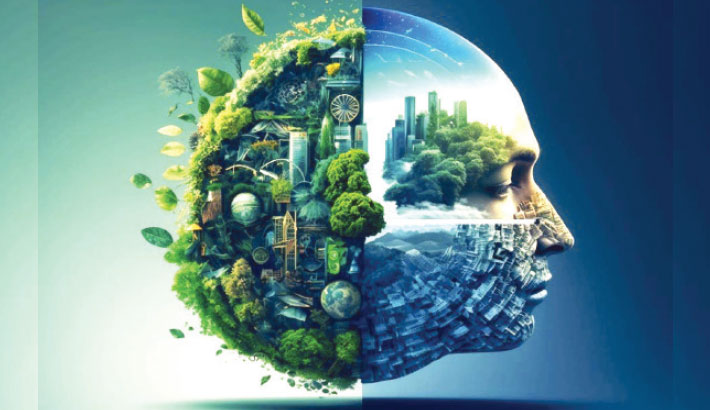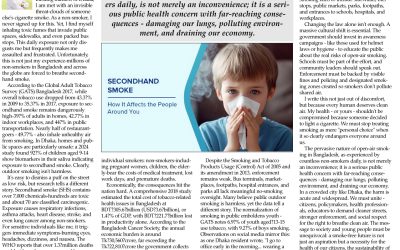These risks pose significant threats to the functioning of critical societal systems. Additionally, from environmental degradation to social injustices, from unnecessary wars to political manipulations, the present civilization grapples with its own demons.
At the heart of the present polycrisis lies the acknowledgment of humanity’s role in its creation. For centuries, civilization’s have thrived by exploiting nature, often heedless of the consequences. The industrial revolution fuelled unprecedented growth but also ushered in an era of environmental degradation.
 From air and water pollution to deforestation and loss of biodiversity, humans have significantly altered the planet’s ecosystems, leading to irreversible damage. Since the onset of the Industrial Revolution, the Earth’s average annual temperature has risen by slightly more than 1 degree Celsius, or around 2 degrees Fahrenheit.The rampant consumption of fossil fuels, deforestation for agricultural expansion, and killing of rivers and ponds have contributed to rising greenhouse gas emissions, resulting in climate change. The consequences are dire, with extreme weather events, melting ice caps, and rising sea levels. Climate scientists now assert that we must cap global warming at 1.5 degrees Celsius by 2040 to avert a future rife with its most catastrophic consequences.
From air and water pollution to deforestation and loss of biodiversity, humans have significantly altered the planet’s ecosystems, leading to irreversible damage. Since the onset of the Industrial Revolution, the Earth’s average annual temperature has risen by slightly more than 1 degree Celsius, or around 2 degrees Fahrenheit.The rampant consumption of fossil fuels, deforestation for agricultural expansion, and killing of rivers and ponds have contributed to rising greenhouse gas emissions, resulting in climate change. The consequences are dire, with extreme weather events, melting ice caps, and rising sea levels. Climate scientists now assert that we must cap global warming at 1.5 degrees Celsius by 2040 to avert a future rife with its most catastrophic consequences.
Apart from this, the plastic pollution is another man-made crisis of the modern world. The proliferation of single-use plastics has led to widespread plastic pollution. Plastic debris harms marine life, contaminates ecosystems, and poses risks to human health through micro plastic ingestion.
In recent conflicts, such as those in Gaza, Ukraine, Sudan, and Syria, civilians bear the brunt of violence, facing displacement, deprivation, and loss of life. The tragic irony is that amid the chaos and destruction, the principles of humanity and compassion are often abandoned. Civilians become pawns in political games of the superpowers, their suffering overlooked or exploited for strategic gains. Regrettably, instead of working towards peace, leaders’ eagerness for conflict puts us all in jeopardy.
The conflict in Ukraine has led to a humanitarian crisis characterised by displacement, violence, and economic instability. The annexation of Crimea by Russia in 2014 and the ongoing separatist insurgency have fuelled tensions, resulting in a protracted conflict with devastating consequences for civilians.
The war has resulted in significant casualties among Russian military personnel, with 315,000 reported dead and injured. Additionally, nearly 25,000 Ukrainian soldiers have lost their lives since the invasion commenced. In addition, the conflict in Ukraine caused a surge in energy and food prices, resulting in widespread inflationary pressures that sparked a global cost-of-living crisis, leading to social unrest.
Following moments of horror, what we desperately need are politicians who possess both the capability and the willingness to actively promote de-escalation. The budget for army, deadly weapons should be allocated for the eradication of illiteracy, poverty, hunger and diseases.
The Poly crisis faced by the modern civilization is a testament to humanity’s collective failure to steward the planet responsibly and promote peace and justice.
Addressing this crisis requires a paradigm shift that prioritises sustainability, equity, and cooperation over short-term gains and power struggles. From rethinking our consumption patterns to advocating for peaceful resolutions to conflicts, individuals, communities, and governments must work together to forge a path towards a more resilient and humane civilization. The stakes are high, but so too are the opportunities for meaningful change. It is up to us to heed the call and shape a future where humanity thrives in harmony with nature and each other.


0 Comments